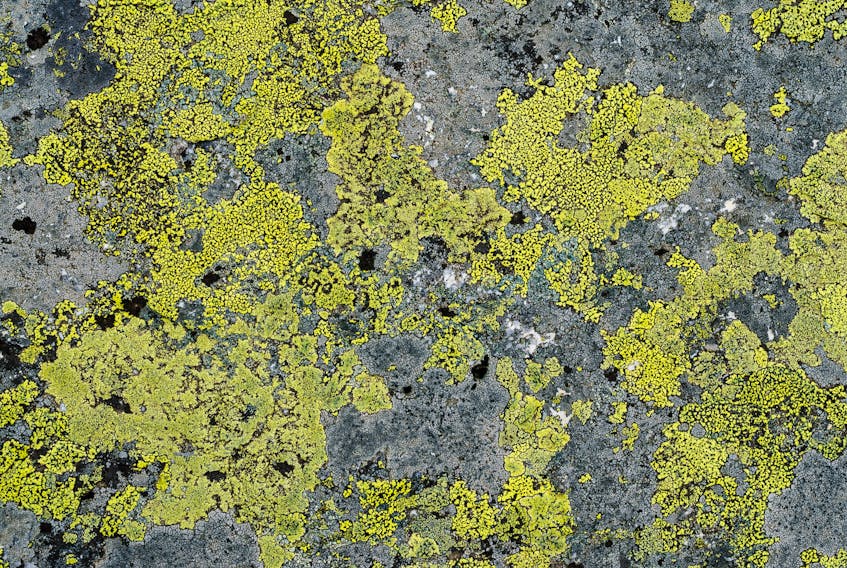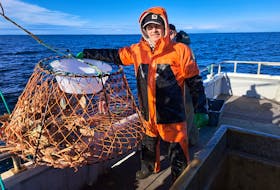A mantle of sphagnum moss is overtaking the inhospitable rolled-flat surface of my driveway. It’s growing a little differently, its fronds finer, than the carpets you find draped over rocks in the woods, but it’s sphagnum just the same.

Out my upstairs window, on the slick black plastic insulation of the heavy power line coming into the house, uneven patches of lichen are growing — that almost leafy pale green one, the one that sometimes ends up looking like rotting corn flakes as it reaches its full size.
On the side of the car, on the rubbery seal just below the back windows that are almost never opened, if you get up close enough and squint, you can find tiny patches of that same lichen, setting optimistic footholds whose entire futures depend on my distaste for washing the car.
But it’s not just my yard.
Out my window in the grey, wet, early winter, I can see the rooftops of Planet Green Shed and Planet White House slowly being colonized, the green moss on Green Shed’s roof the shape of the maple branches that overhang it, the moss on White House extending out slowly from the vee where the roofs meet, a spot where presumably the best original footing and moisture was available.
Little ecosystems, intent on overtaking even the most sturdy of manmade substances. Inching forward, mere microns at a time. One day a small patch, and the next time you notice, almost the whole roof.
I write a lot about the effects we are having on this world, about the way that we’ve actually managed to crank up the thermostat on something as large as a planet, and about the way those effects are not only measurable, but obvious to monoliths that normally almost seem immovable: big banks, insurance companies, heavy industry.
The mayor of Port aux Basques calls high winds stripping the roof off a restaurant in town “the new normal.”
Temperatures are rising on land and in the oceans, and the only way to avoid recognizing that is to deliberately turn your eyes away. Fish species are moving from normal ranges and cropping up in other places. Recent research from Germany points out that, with only a small new change in ocean temperatures and acidification, cod will no longer be able to successfully breed south of the Arctic Circle.
Scientists are tracking huge fall-offs in insect species, not only bees but hordes of other insects we need to do the basics like pollinate the crops we depend on for food.
Weather’s becoming more erratic as the steady currents of water and air, things like the jet stream and the Gulf Stream, change and weaken, meaning the seesaw of hot and cold weather is becoming more pronounced, just like it was first forecast to do a decade ago. The mayor of Port aux Basques calls high winds stripping the roof off a restaurant in town “the new normal.”
It makes me think of tuckamore.
Spruce trees grow a certain way when the circumstances are right: tall, with even-spaced branches and an almost perfectly circular drip-line of branch tips. All sorts of things can impinge on that: branches broken by wind and snow, crowding, pests. And sometimes, like it does on our coasts, steady wind converts what should be tall trees into less-than-shoulder-high hedges. Spruce copes.
I’m pretty sure we wouldn’t adjust as well.
Funny that the only creatures smart enough to find ways to almost fully control our environment, humans, are also going to be the ones that seem intent on wrecking it, to the detriment of our species and many others.
But back to the creeping moss and tough little lichen.
It gives me hope.
Not for us, of course, a species intent on grabbing whatever we can at whatever the cost.
But for life.
Won’t it just be priceless to be out-adapted by something as simple as a lichen?
Related articles:
RUSSELL WANGERSKY: Science that should surprise no one
Russell Wangersky’s column appears in 36 SaltWire newspapers and websites in Atlantic Canada. He can be reached at [email protected] — Twitter: @wangersky.









